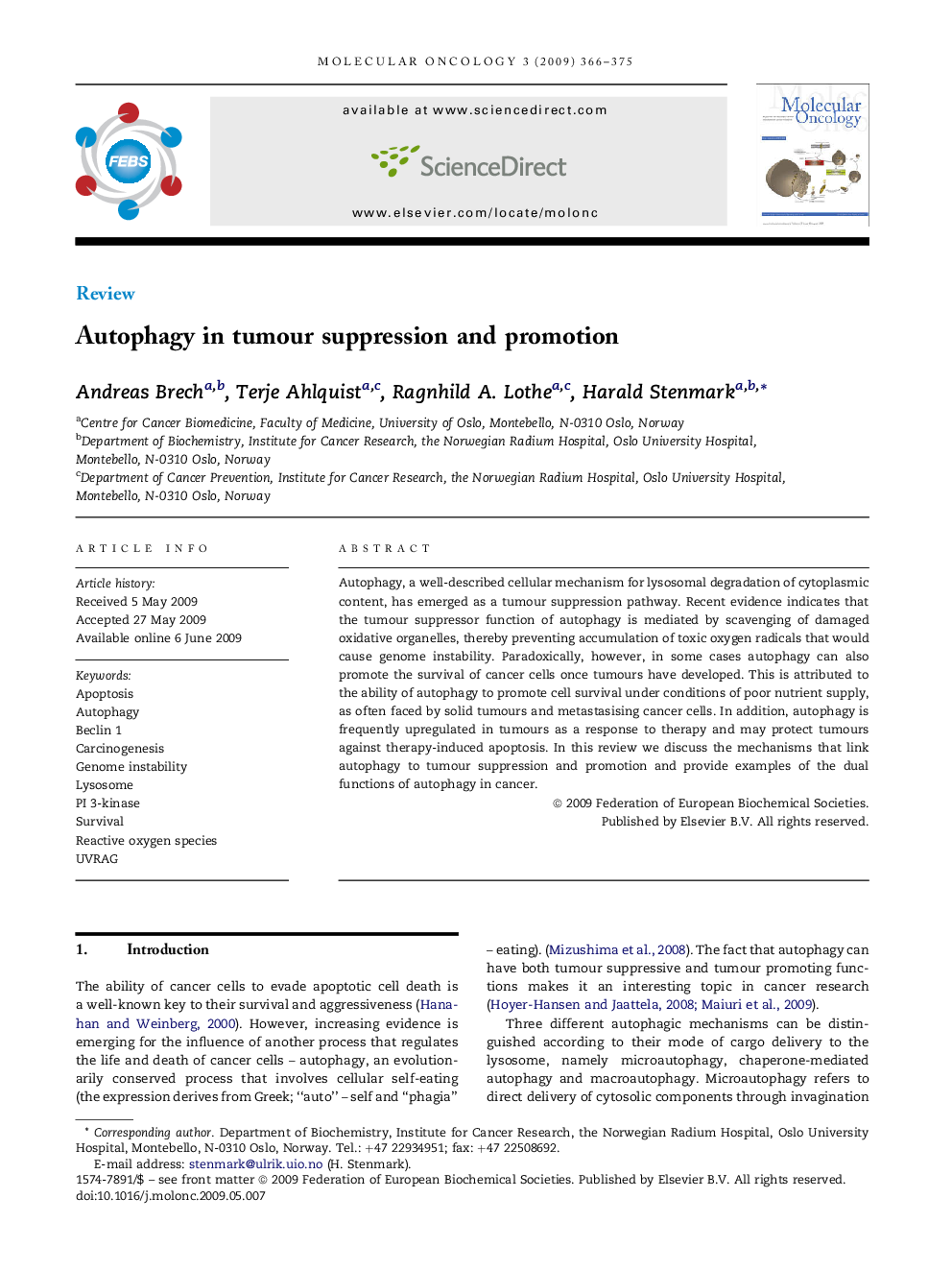| Article ID | Journal | Published Year | Pages | File Type |
|---|---|---|---|---|
| 2145956 | Molecular Oncology | 2009 | 10 Pages |
Abstract
Autophagy, a well-described cellular mechanism for lysosomal degradation of cytoplasmic content, has emerged as a tumour suppression pathway. Recent evidence indicates that the tumour suppressor function of autophagy is mediated by scavenging of damaged oxidative organelles, thereby preventing accumulation of toxic oxygen radicals that would cause genome instability. Paradoxically, however, in some cases autophagy can also promote the survival of cancer cells once tumours have developed. This is attributed to the ability of autophagy to promote cell survival under conditions of poor nutrient supply, as often faced by solid tumours and metastasising cancer cells. In addition, autophagy is frequently upregulated in tumours as a response to therapy and may protect tumours against therapy-induced apoptosis. In this review we discuss the mechanisms that link autophagy to tumour suppression and promotion and provide examples of the dual functions of autophagy in cancer.
Keywords
Related Topics
Life Sciences
Biochemistry, Genetics and Molecular Biology
Cancer Research
Authors
Andreas Brech, Terje Ahlquist, Ragnhild A. Lothe, Harald Stenmark,
